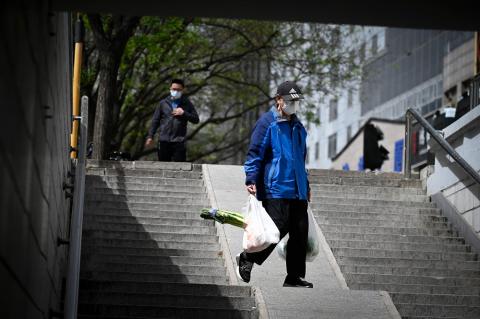
The Bank of Korea lowered its key interest rate by a quarter percentage point to 1.5 percent
SEOUL: South Korea’s central bank on Thursday cut its policy rate for the first time in three years to shore up growth threatened by a trade dispute with Japan.
The Bank of Korea lowered its key interest rate by a quarter percentage point to 1.5 percent following a meeting of its monetary policy committee, which also cut its growth forecast for the country’s economy this year from 2.5 percent to 2.2 percent.
The bank cited slowing exports and domestic investment and volatility in financial markets related to the trade war between the US and China and Japanese curbs on certain technology exports to South Korea. The bank had hiked the rate by 0.25 percentage points in November and last lowered borrowing costs in June 2016.
The bank said in a statement it will “carefully monitor developments such as the US-China trade dispute, Japan’s export restrictions, any changes in the economies and monetary policies of major countries ... and geopolitical risks, while examining their effects on domestic growth and inflation.”
Lee Ju-yeol, the bank’s governor, said South Korea’s exports and domestic investment during the first half of the year were more sluggish than expected and that it’s “hard to be optimistic about the (economic) conditions moving forward.”
The rate cut came amid escalating tensions between South Korea and Japan over Tokyo’s move to tighten controls on the exports of photoresists and two other chemicals to South Korean companies that use them to produce semiconductors and display screens for smartphones and TVs.
South Korea says the Japanese trade curbs could hurt its export-dependent economy and disrupt global supply chains. Lee said the bank’s monetary policymakers assessed how the trade dispute could affect growth at the macroeconomic level.
South Korea has accused Japan of weaponizing trade to retaliate against South Korean court rulings calling for Japanese companies to compensate aging South Korean plaintiffs for forced labor during World War II.
Tokyo says the materials affected by the export controls can be sent only to trustworthy trading partners. Without presenting specific examples, it has questioned Seoul’s credibility in controlling the exports of arms and items that can be used both for civilian and military purposes.
South Korea is also bracing for the possibility that Japan will take further steps by removing it from a 27-country “whitelist” receiving preferential treatment in trade.
Its removal from the list would require Japanese companies to apply for case-by-case approvals for exports to South Korea of hundreds of items deemed sensitive, not just the three materials affected by the trade curbs.











